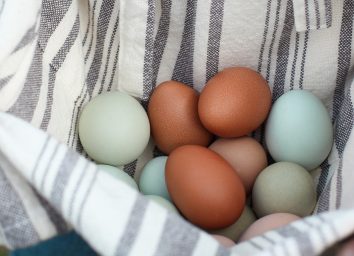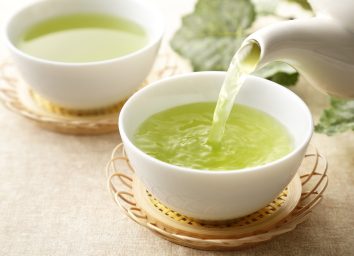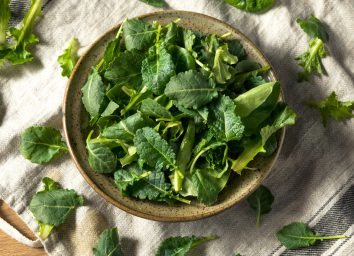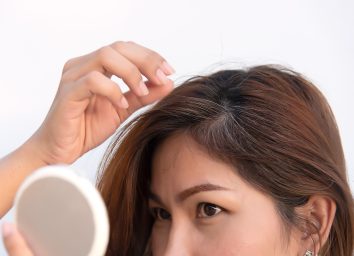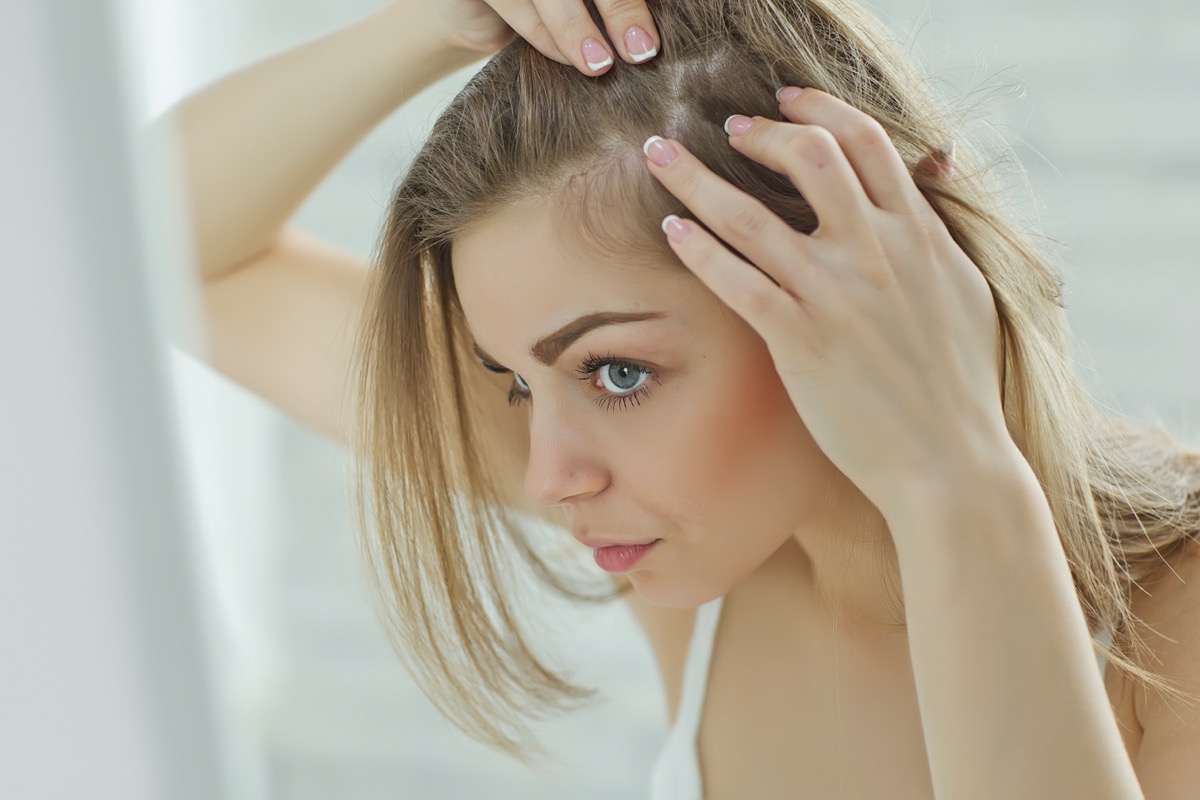
If you’re older than fifteen, the era of your thickest hair has come and gone. From now on, the name of the game is to keep as much of that stuff on your head. (And to maintain its luster, strength, and shine.)
Although the causes of hair loss are many — including genetics, age, hormones, nutrient deficiencies, toxicity, medications, and autoimmunity — changing your diet can, in many cases, be helpful. “Proper diet and supplements can slow or reverse hair loss, and make the hair thicker and healthier,” says nutritionist Joseph Debé, DC, CDN, CCSP.
Below are 17 nutrient-rich foods that have been shown to keep hair healthy and full. And while we’re on the subject of aging, you won’t want to miss our exclusive report: 30 Foods You Should Never Eat After Age 30.
Spinach
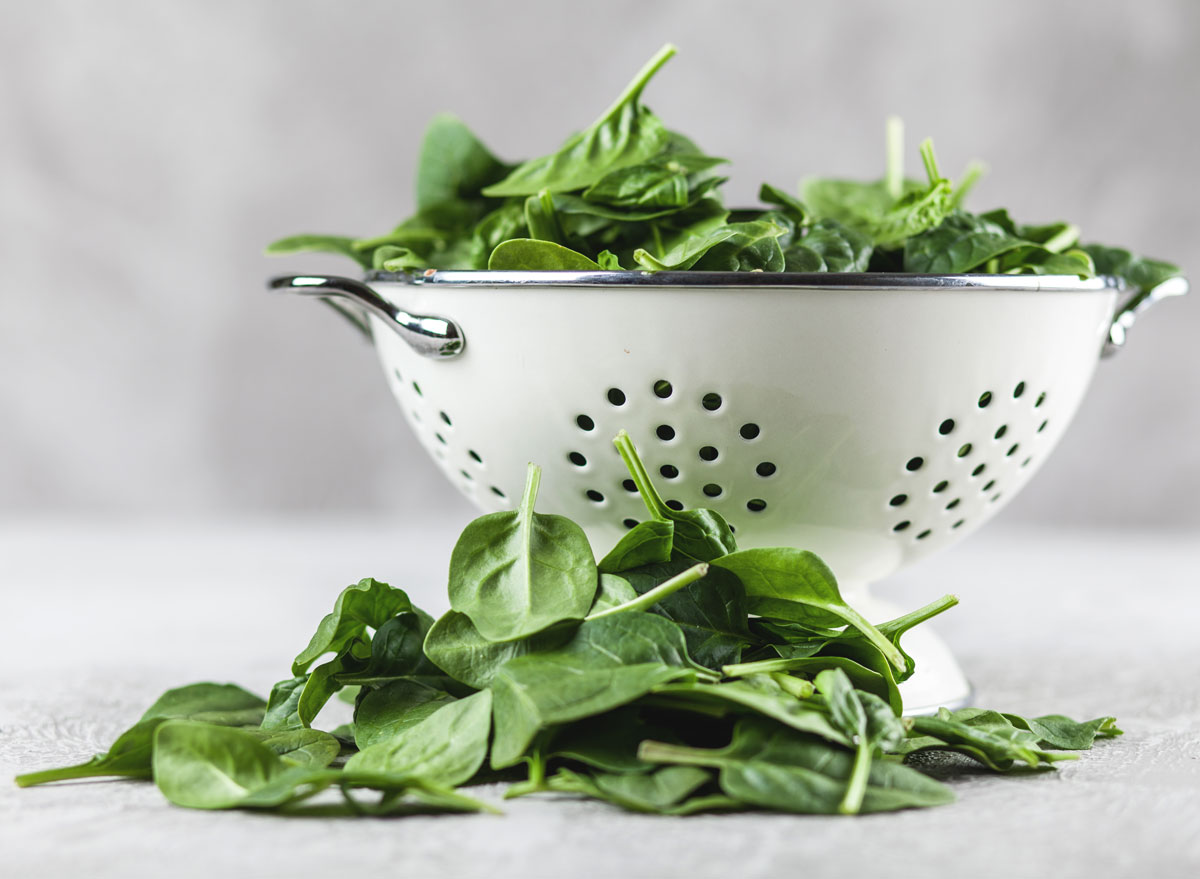
In some cases (particularly in women), a mineral deficiency is the cause of hair loss. “It’s important to make sure you don’t have a lack of something in your diet that could be leading to hair loss,” says dermatologist Carolyn Jacob, MD, FAAD. “We check protein levels, iron, iron storage, vitamin D and a number of other labs to make sure you don’t have deficiencies.”
Spinach is iron rich and it contains sebum, which acts as a natural conditioner for hair. The leafy green also provides omega-3 acids, magnesium, potassium, calcium, and iron. All help keep hair lustrous, shiny and, most importantly, out of the drain.
STAY INFORMED: Sign up for our newsletter to get the latest food news delivered straight to your inbox.
Sunflower Seeds

Sunflower seeds are rich in vitamin B5 (known as pantothenic acid), which helps with blood flow to your scalp and hair growth. According to a Clinical and Experimental Dermatology report, pantothenic acid deficiencies have been identified as a nutrient connected to hair loss. Just one ounce of the seeds serves up a solid 20 percent of your DV of the vitamin.
Salmon
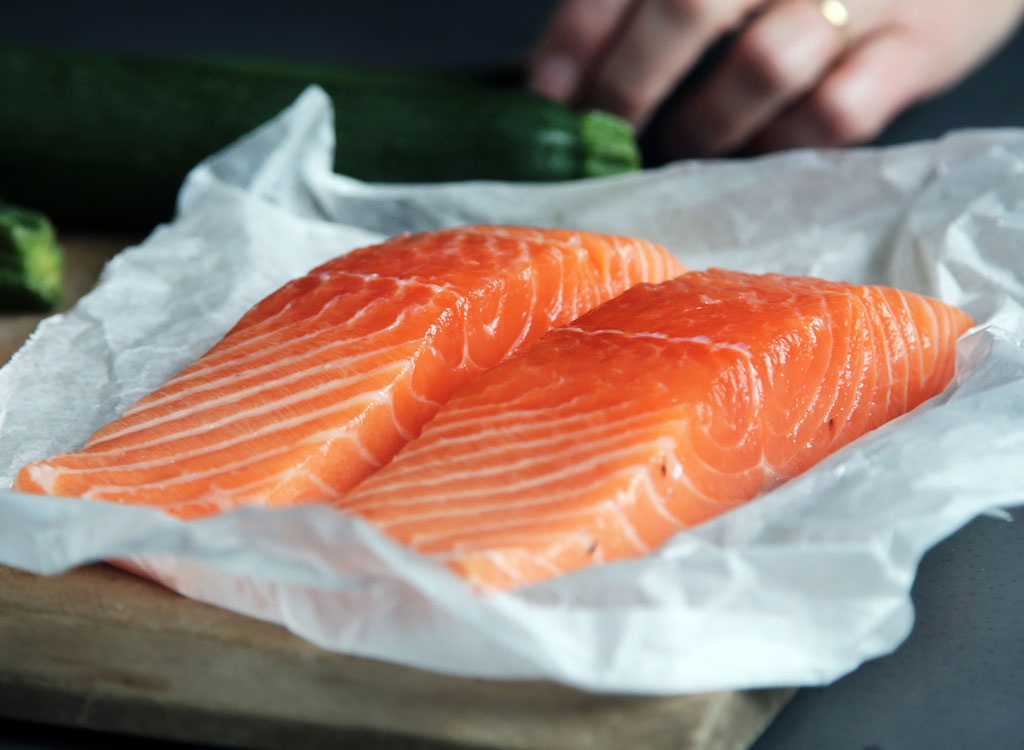
The human body can do a lot of crazy stuff, like turning sunlight into bone-strengthening vitamin D. Something it can’t do, however, is make omega-3 fatty acids. In addition to helping you stay fit and disease free, omega-3’s enable you to grow hair and keep it shiny and full.
“Omega-3’s are anti-inflammatory. They can help if you have inflammation that’s causing hair shedding,” says Dr. Jacob. It’s best to get omega-3s from natural sources, such as salmon and cold-water fish like sardines and mackerel.
Beets
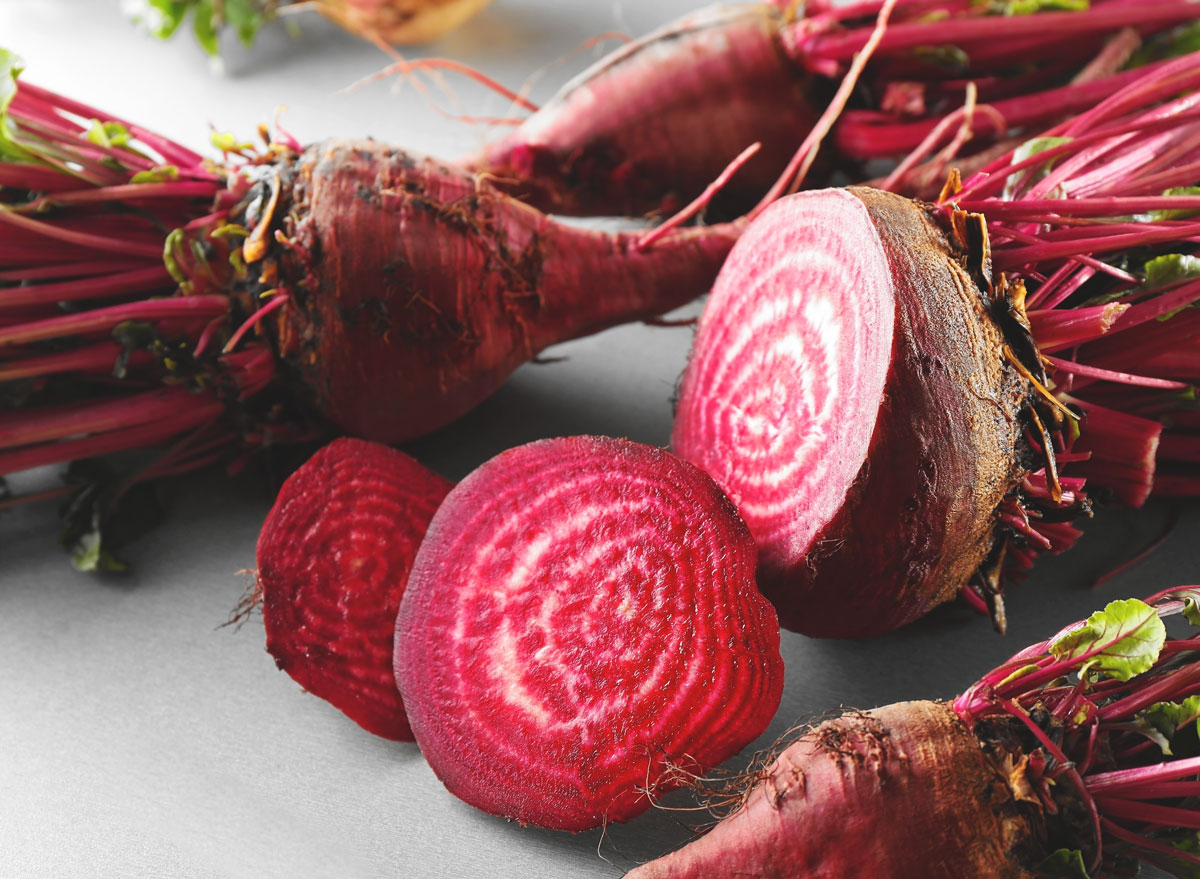
This ruby red root is rich in natural chemicals known as nitrates. After being broken down in your body, these chemicals may contribute to improved circulation, according to a British Journal of Clinical Pharmacology study, which may bring oxygen and nutrients to your hair follicles.
Oatmeal
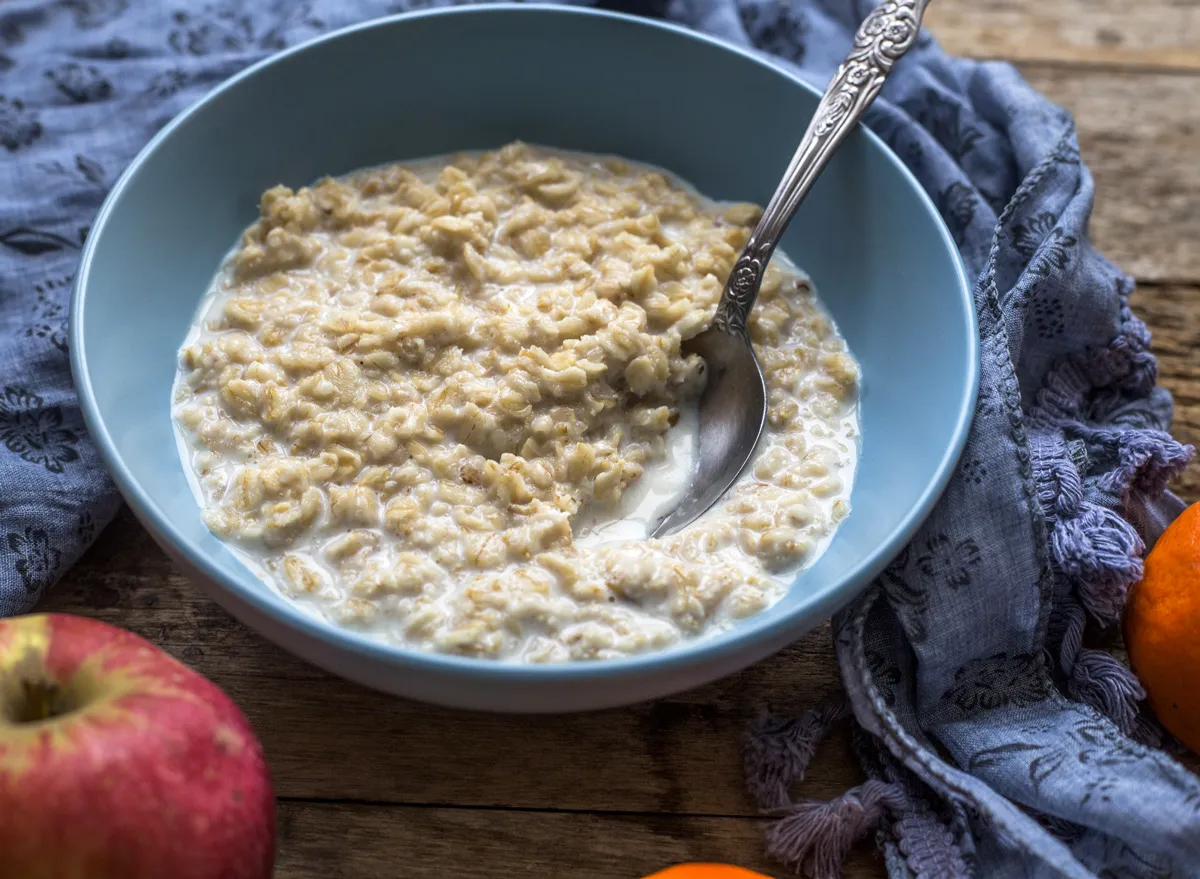
Oats are rich in beta-glucans, a type of soluble fiber. According to Dr. Debé, both male-pattern balding and female hair loss is often associated with insulin resistance. Due to its high concentration of fiber, oatmeal is one food that helps improve the body’s insulin sensitivity.
Chicken
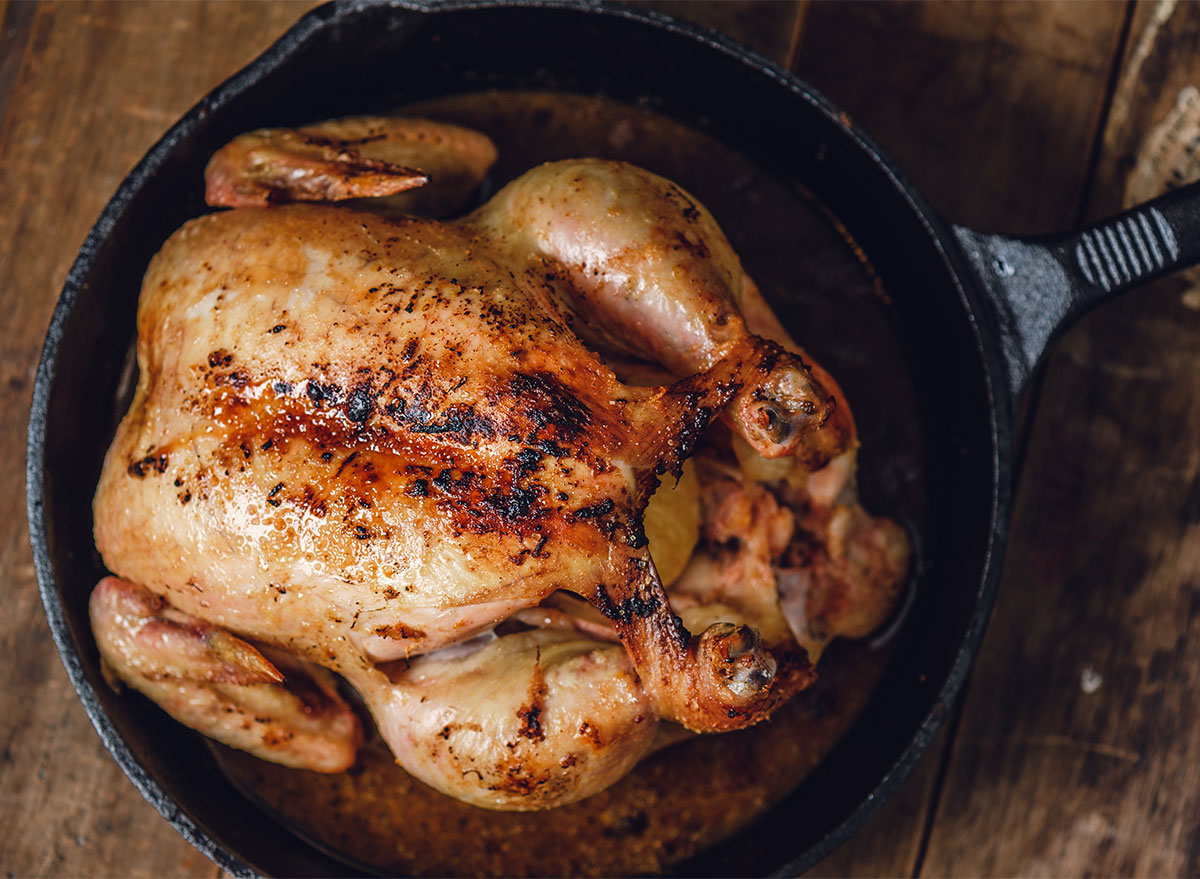
An Annals of Dermatology study discovered that one type of polyunsaturated fatty acids—an omega-6 fatty acid known as arachidonic acid (AA)—can stimulate hair growth, making it thick and healthy. According to the 2005-2006 National Health and Nutrition Examination Survey (NHANES), chicken is the top source of AA intake in America. A 1-cup serving of a roasted chicken contains 154 milligrams of arachidonic acid.
Red Bell Pepper
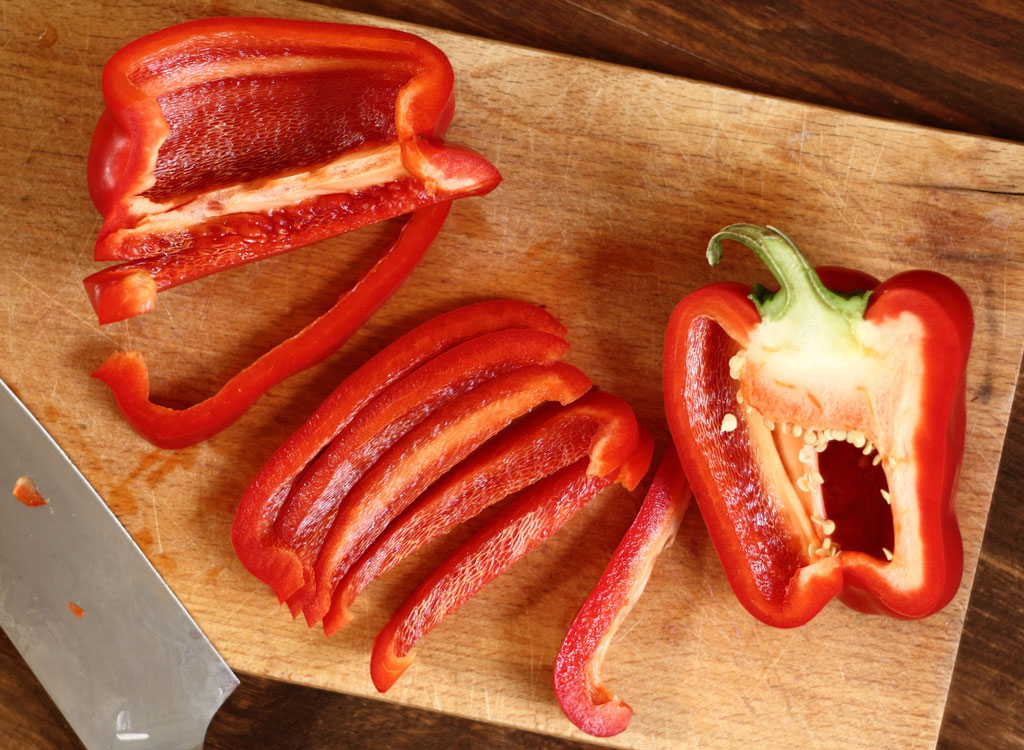
Vitamin C prevents hair from becoming brittle and breaking. In a double-blind, placebo-controlled 2012 study published in the Journal of Clinical and Aesthetic Dermatology, researchers tested an oral supplement containing vitamin C in women with thinning hair. They found the supplement promoted “significant hair growth in women with temporary hair thinning.” Although we often think of oranges as the best source of vitamin C, just a half of a medium red bell pepper packs 158 percent of your DV of the nutrient. We’ve rounded up 6 more foods that are the best sources of vitamin c.
Eggs
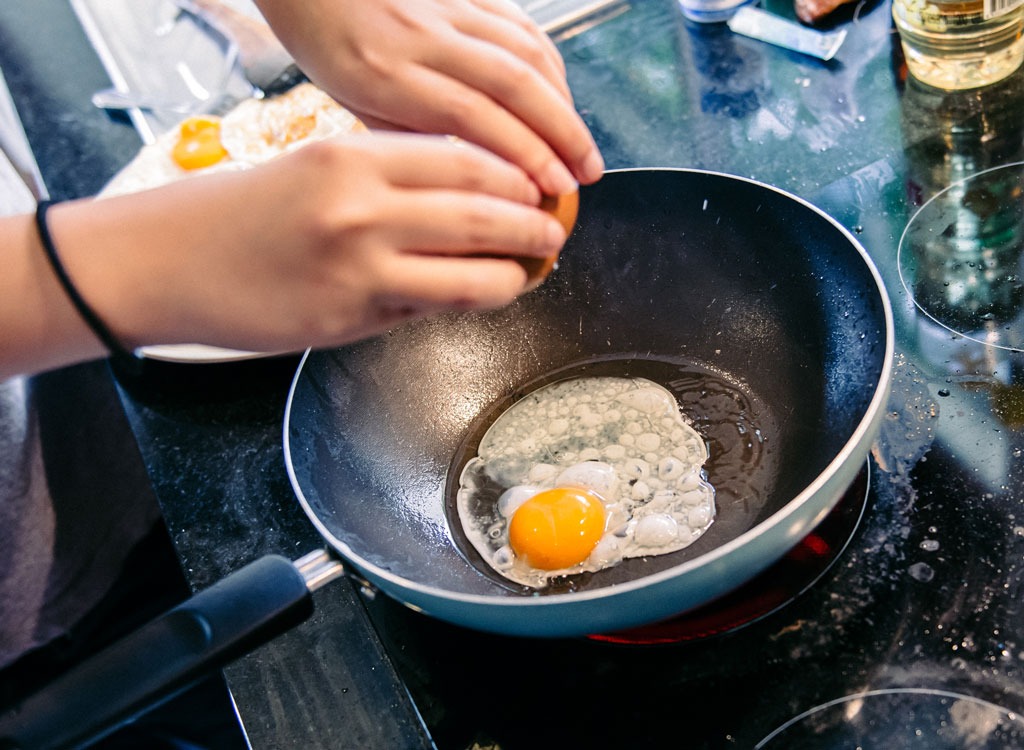
Eggs are packed with a B vitamin called biotin, which helps hair grow and strengthens brittle fingernails. Out of a group of women with hair loss, 36 percent of them were identified to have a biotin deficiency in an International Journal of Trichology study. Not having enough of this vitamin can lead to hair loss. Other good sources of biotin: almonds, avocados, and salmon.
Lentils
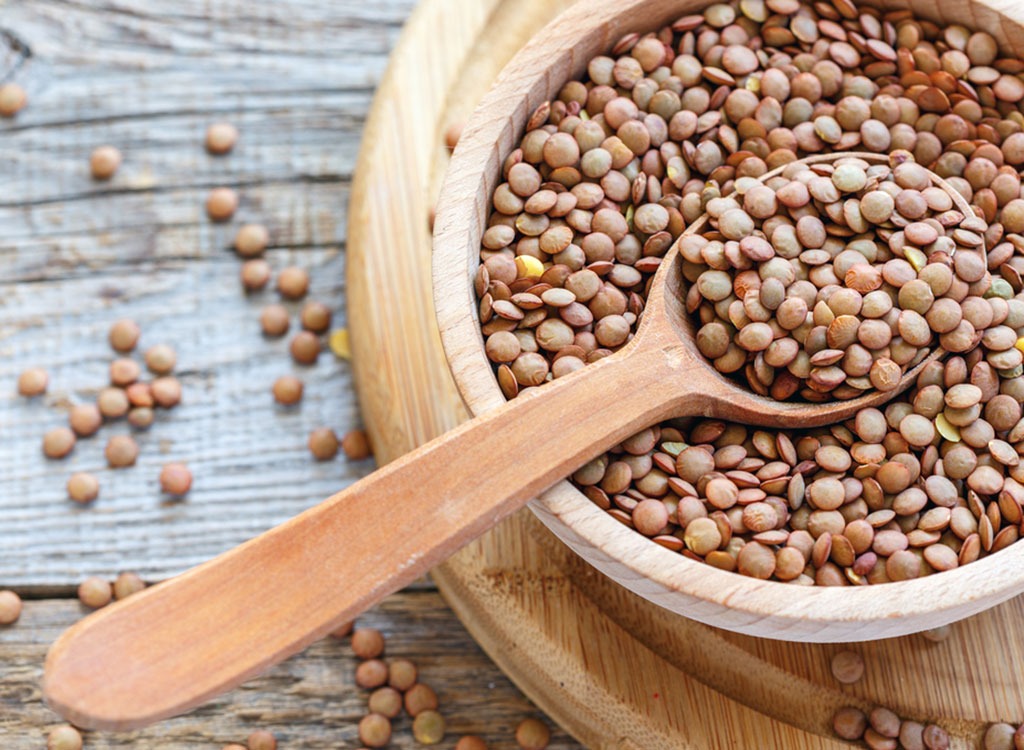
Full of protein, iron, zinc, and biotin, lentils also have plenty of folic acid. The body needs folic acid to restore the health of red blood cells that supply skin and scalp with hair-healthy oxygen, according to Johns Hopkins Medicine.
Oysters
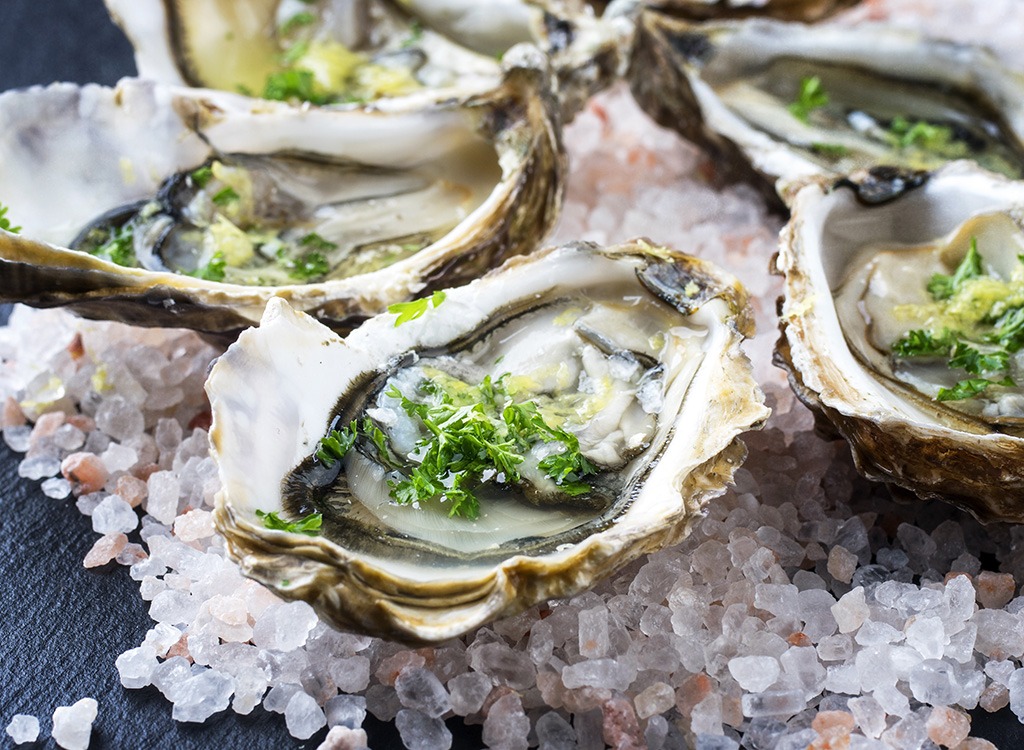
Zinc is an important mineral for overall health. When you don’t have enough, you can experience hair loss — even in your eyelashes! Dr. Debé notes that zinc supplementation has been shown to improve hair loss in women with polycystic ovary syndrome (PCOS), according to a Biological Trace Element Research study. How? Zinc helps the cells responsible for building hair do their thing. You can also find rich stores of zinc in beef, crab, and lobster.
Lean Ground Beef
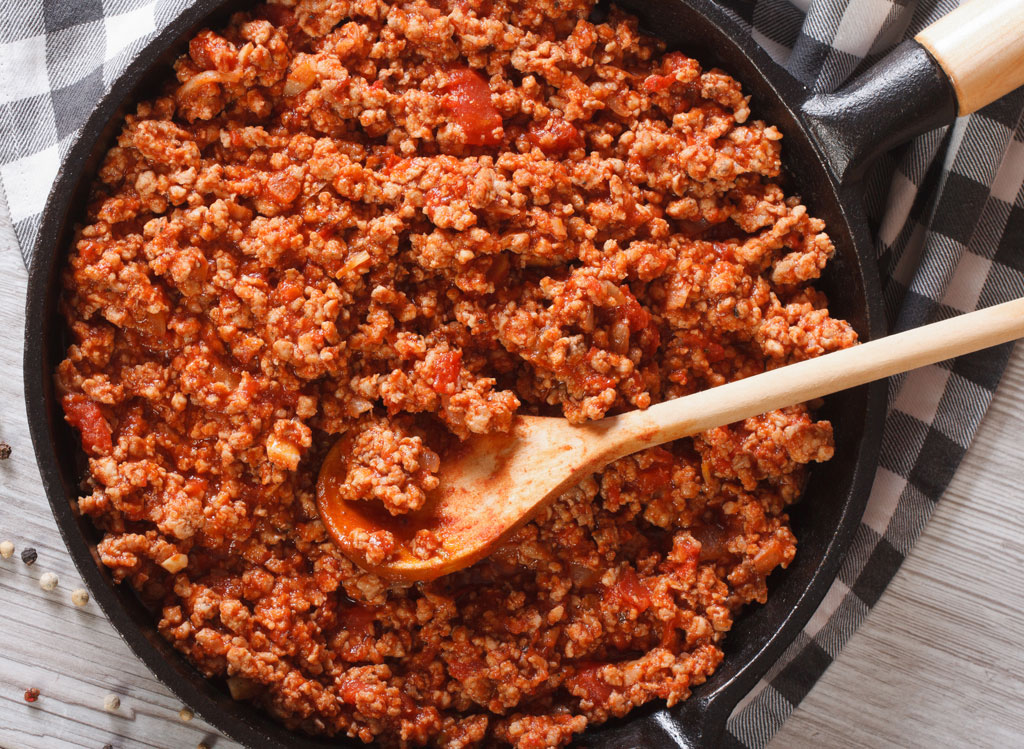
As mentioned, iron deficiency can lead to hair loss, most notably in women. Iron is plentiful in plant-based sources such as our ol’ friend spinach (and other dark leafy greens), soybeans, lentils, fortified grains, and pasta. However, the body absorbs up to three times more iron from animal sources, so your best bet might be opting for lean, ground beef a couple times a week. A 4-ounce serving of cooked, 93 percent-lean beef crumbles serves upwards of 20 percent of your daily value of iron, according to the USDA National Nutrient Database.
Lean Poultry
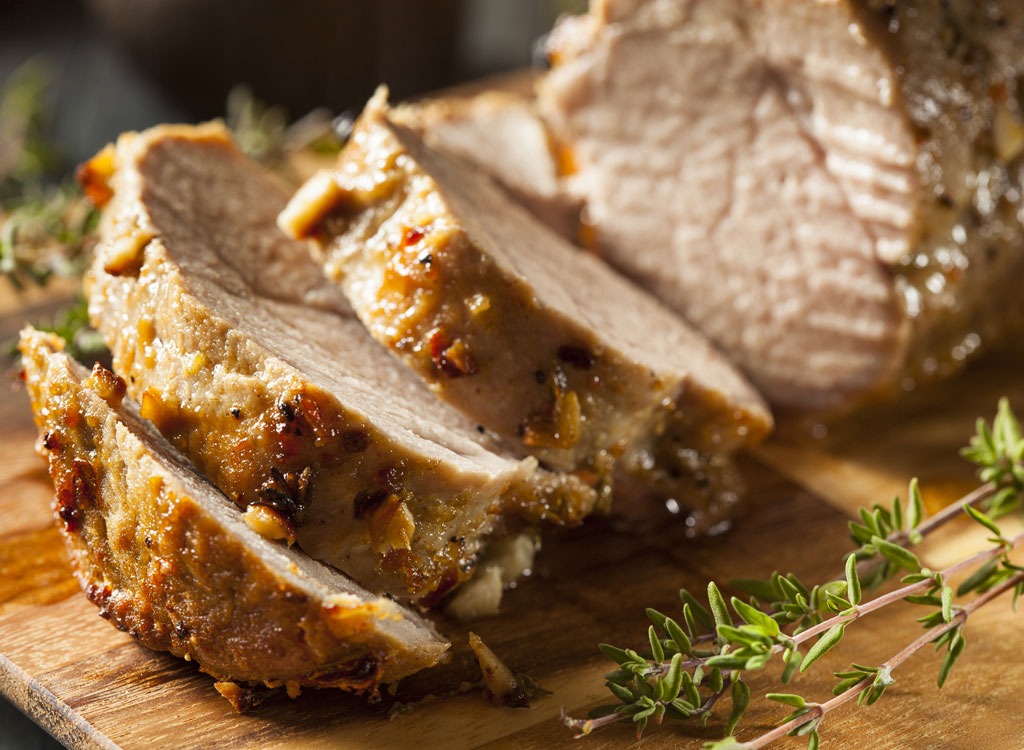
Notice how your muscles don’t grow (and even shrink) when you’re not getting enough protein? The same thing might happen to your hair. Without sufficient dietary protein, hair essentially goes on strike. Less new hair will replace what’s falling out (about 50-100 hairs a day), and you’ll experience a net hair loss. To get protein from meat, pick lean options like chicken, fish, or lean pork loin. They have less saturated fat than the stuff you’ll find sealed in styrofoam dishes at the supermarket.
Barley
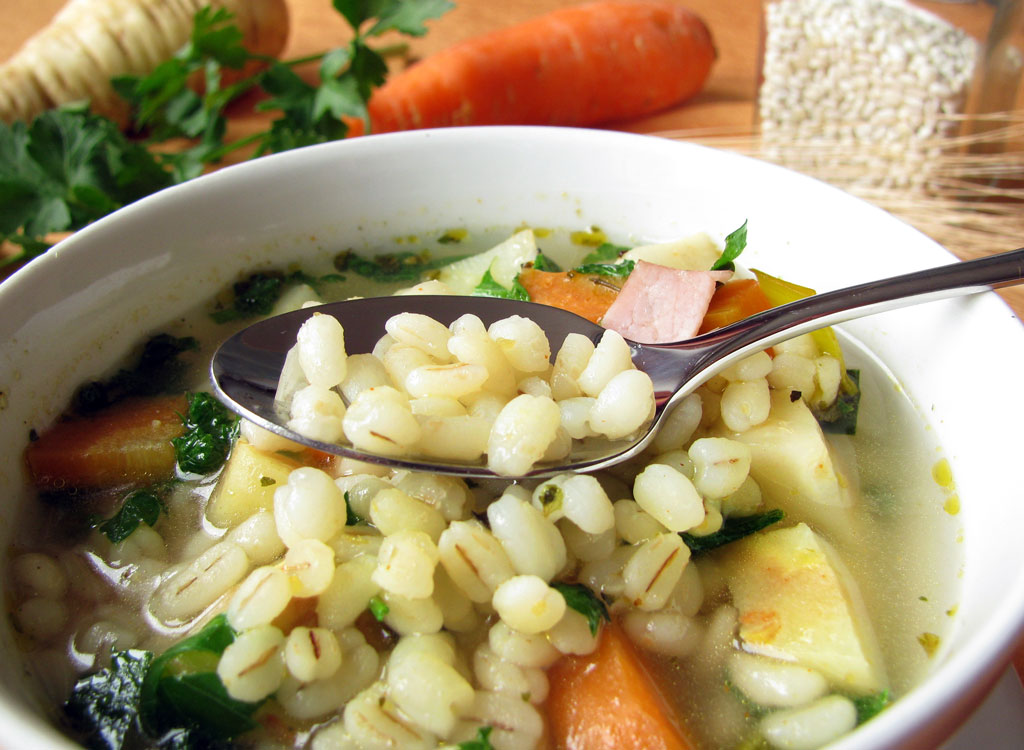
Vitamin E is a powerful antioxidant that can actually absorb damaging UV light and protect skin cells. It also repairs sun damage on the scalp, which can cause hair to thin. In one study, “Tocotrienols, or different types of vitamin E supplements, were studied for eight months in patients with hair loss,” says Dr. Debé. Thirty-eight people received the supplement, and some received a placebo. The supplemented group had a 34 percent improvement in hair growth.” Dr. Debé notes that although the amount of tocotrienols used in this study is difficult to get from diet alone, barley is a very good source.
Nuts and Seeds

“There are a few research-proven options to consider for male pattern baldness,” says Dr. Debé. “These include tocotrienols, saw palmetto and beta-sitosterol. A good food source for beta-sitosterol is pistachios.” Walnuts and other nuts contain oils that add to the amount of elastin in your hair. Elastin keeps hair supple and stops it from breaking.
Bok Choy
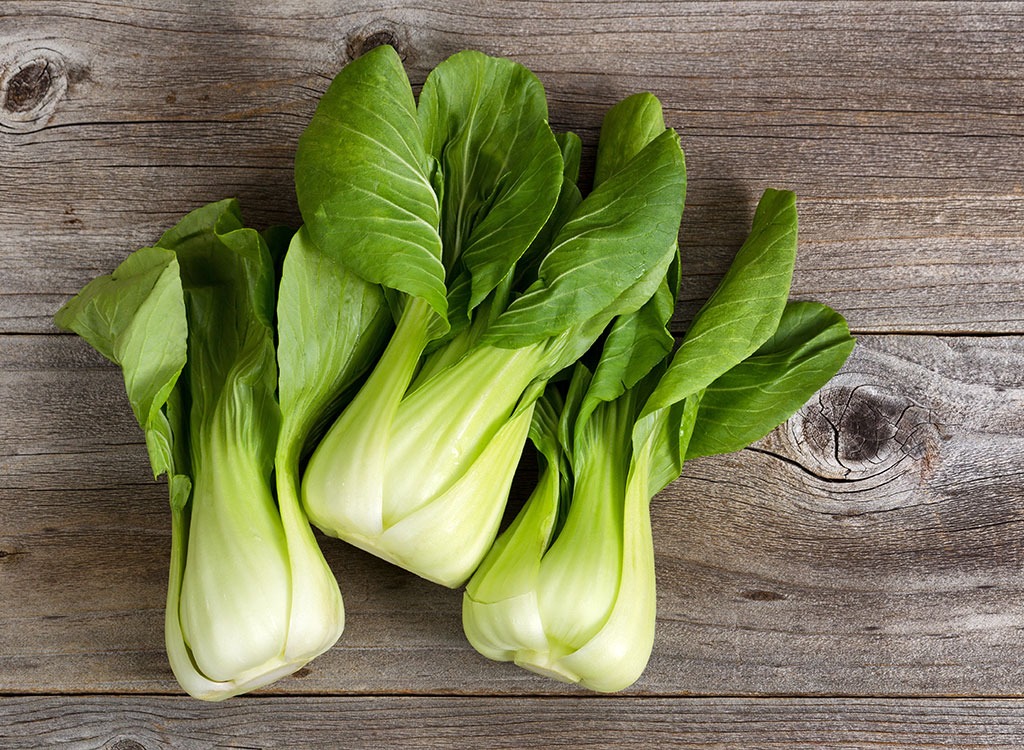
Dermatologists treating hair loss look at the level of ferritin in your blood, because they can deduce what your body is doing with all the iron they told you to add to your diet during your initial consultation. If you’d been eating plenty of bok choy—which is a super iron-rich food—they would likely see a spike in your ferritin levels.
Greek Yogurt
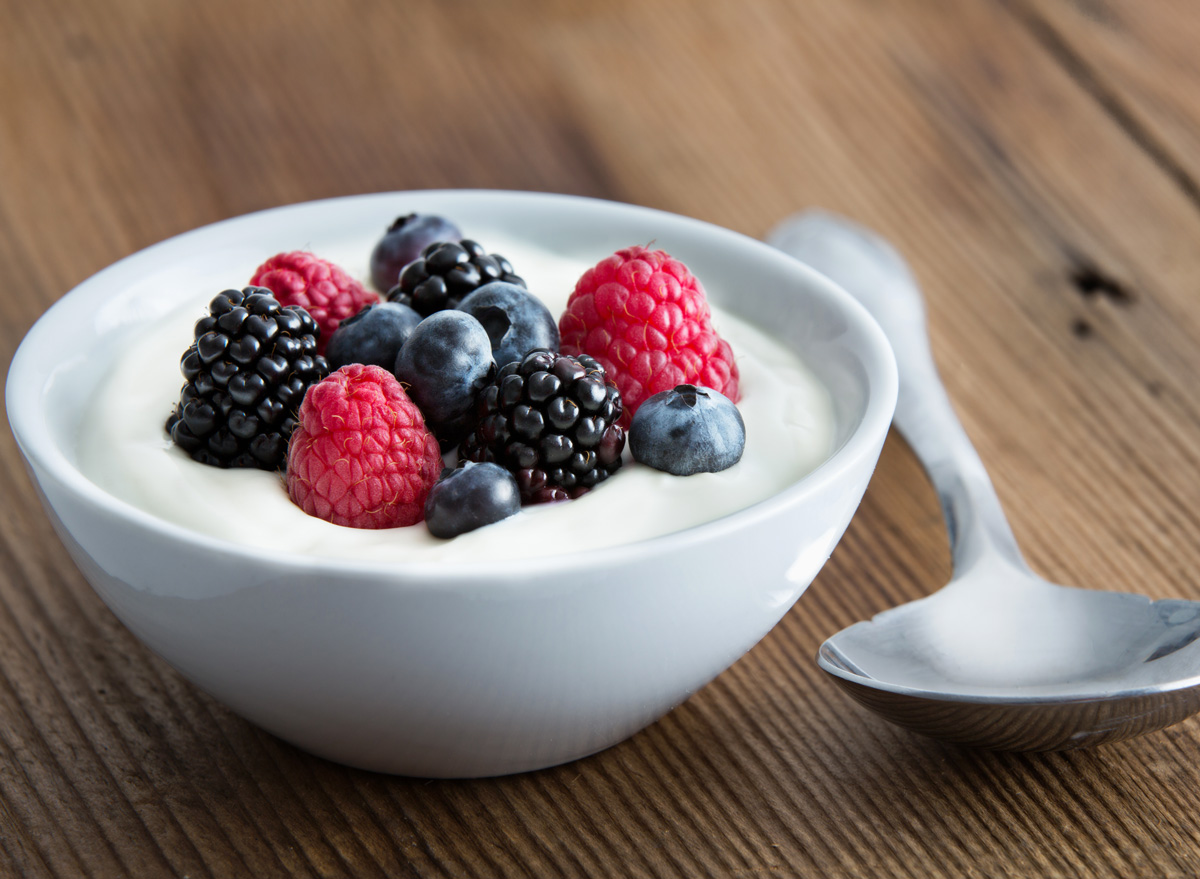
Two trace minerals are also connected to hair growth: selenium and iodine. Both minerals are necessary for proper functioning of the thyroid gland and deficiencies in each can lead to hair loss. To keep a steady dietary source of both minerals, consider having yogurt for breakfast or as a post-workout snack. The dairy product is teeming with the minerals. In fact, one cup of plain low-fat Greek yogurt contains half your daily iodine and 34 percent of your DV selenium. For luscious locks, don’t miss our picks for the best yogurts for Weight Loss.
Halibut
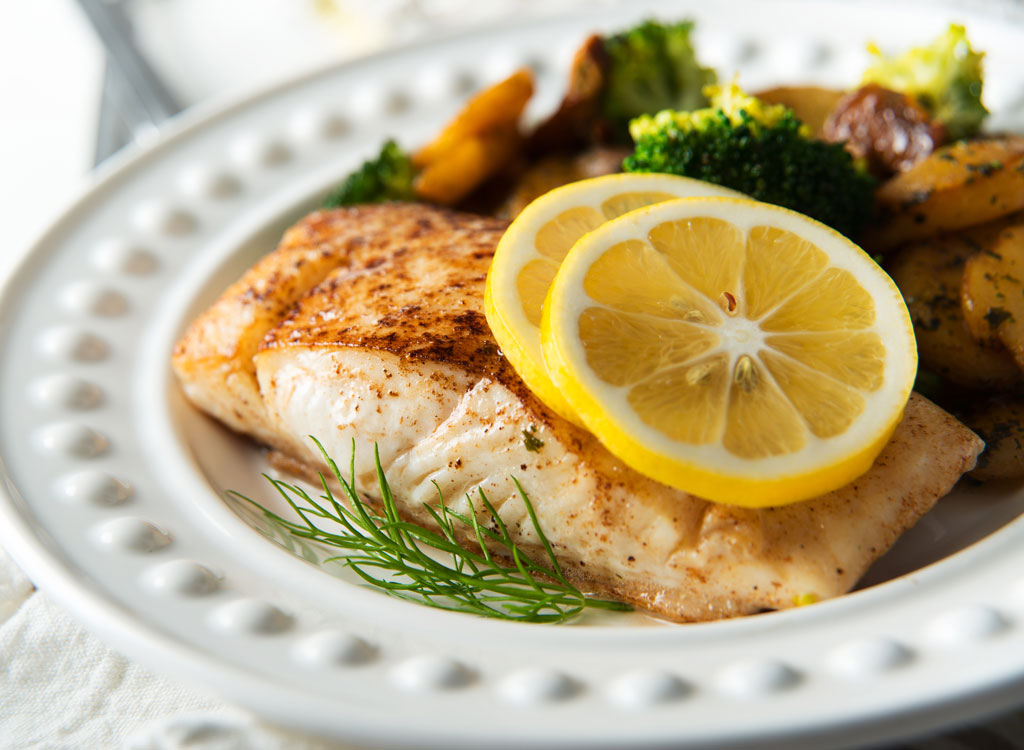
Besides iron, another important mineral for keeping the shine off your dome is magnesium. When your body has a magnesium deficiency, it can lead to a higher concentration of calcium, which may lead to higher insulin levels. Higher insulin levels may cause hair loss, according to the Indian Dermatology Online Journal. Halibut has plenty of magnesium, as do several other types of fish.
